Dragons of Babylon, Part 5
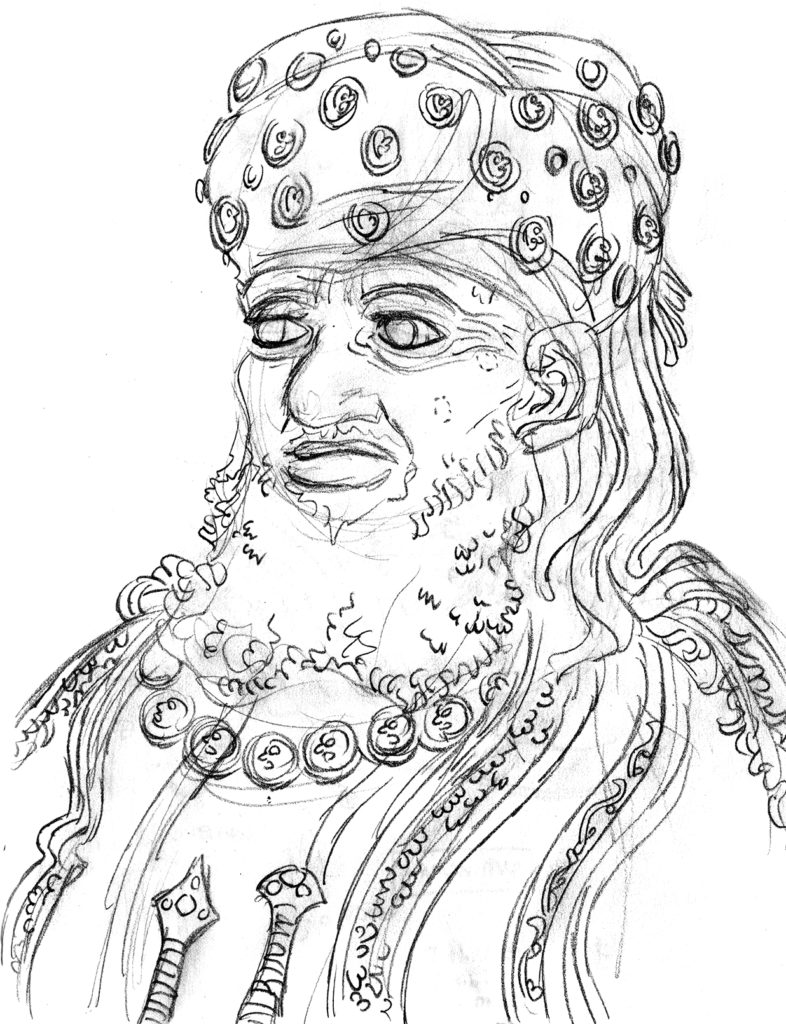
More thoughts on DMing a long D&D campaign:
* Given that we were playing in Fantasy Ancient Babylon, with a map based on the areas of modern-day Iran, Iraq and the Gulf, I did my best to keep the game from being an annoying microaggression-fest, with mixed results. This was helped by the fact that Ancient Babylon, like Ancient Egypt, doesn’t have much link to any modern-day culture and Ancient Sumerian doesn’t have any relation to any modern-day language. (Tho Ancient *Akkadian* is distantly related to Arabic…) If I’d had the urge to DM a Fantasy Version of Baghdad in the Islamic Golden Age (i.e. the old D&D “Al Qadim” setting), I imagine, it would have been a much more delicate and difficult situation and a much harder pitch to the players.
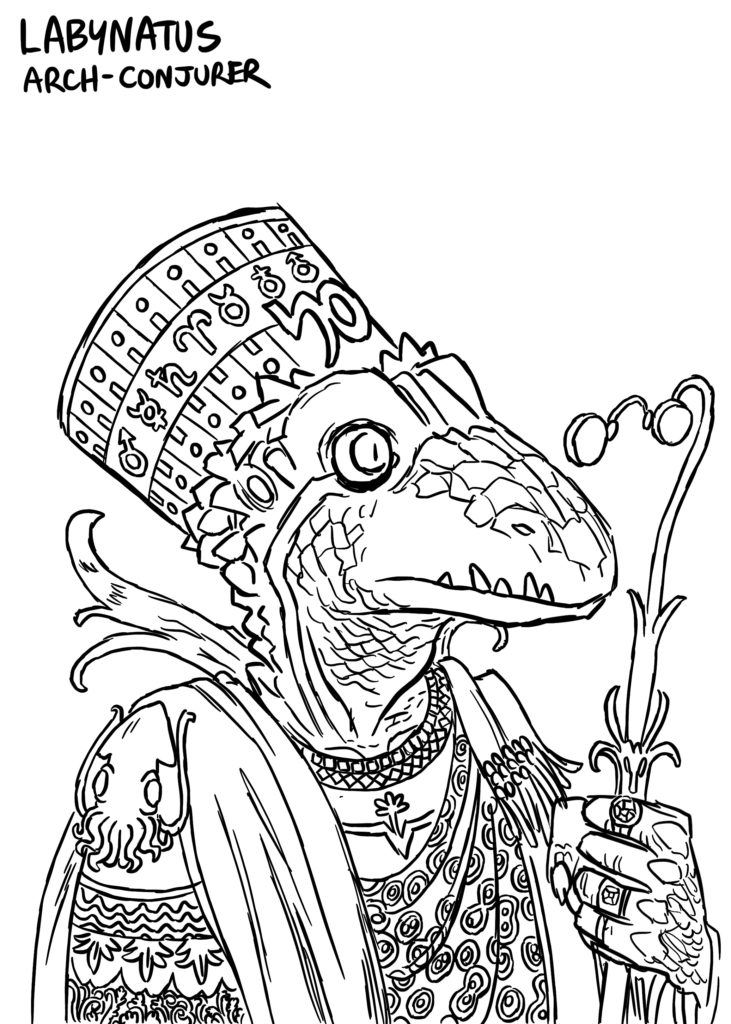
* Several players left the game for different reasons, mostly on good terms, some less so. To list the reasons:
- 2 players left because of new jobs/new school/schedule conflicts
- 1 player ghosted after 2 sessions
- 2 players left because of interpersonal IC/OOC conflict
- 1 player left because of interpersonal IC/OOC conflict, plus they decided they hated D&D 5th edition
- 1 player left at a good stopping point in the story, when they’d just achieved a big in-character goal (and also because of new schedule conflicts)
- 1 player left after 1 session because the commute was too long
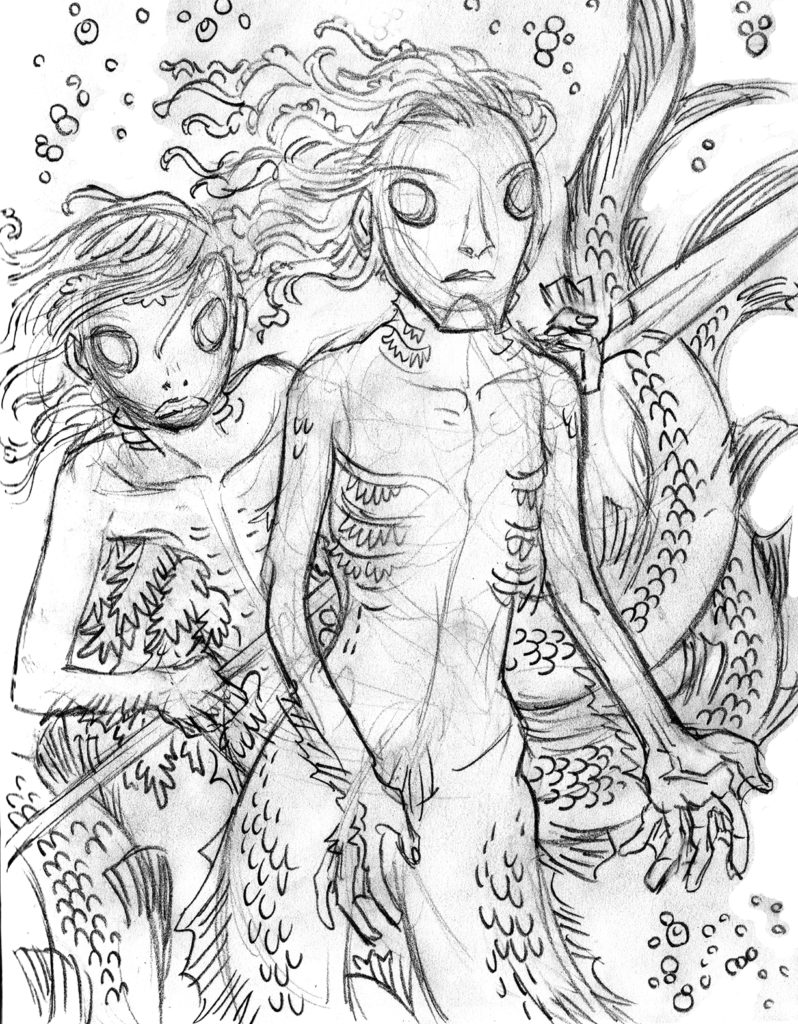
In my experience, when people have in-character conflict, it’s almost always because there’s out-of-character conflict too. People play roleplaying games together (a) because they’re friends but also (b) because they just like roleplaying games and it’s a common interest. Also, four years is A LONG TIME; lots of friendships and relationships don’t last that long, even if you’re not acting out your most violent and unshackled-by-civilization fantasies together every Wednesday.
Over four years, literally every player in the group had times when they became frustrated with the others, often when dealing with out-of-character stress. Some people are naturally louder and more socially dominant than others; others are less focused at the gaming table and will be sharing phone videos, talking over the DM etc. (this is particularly a problem with larger groups); other people have temper issues; others have anxiety issues, etc.
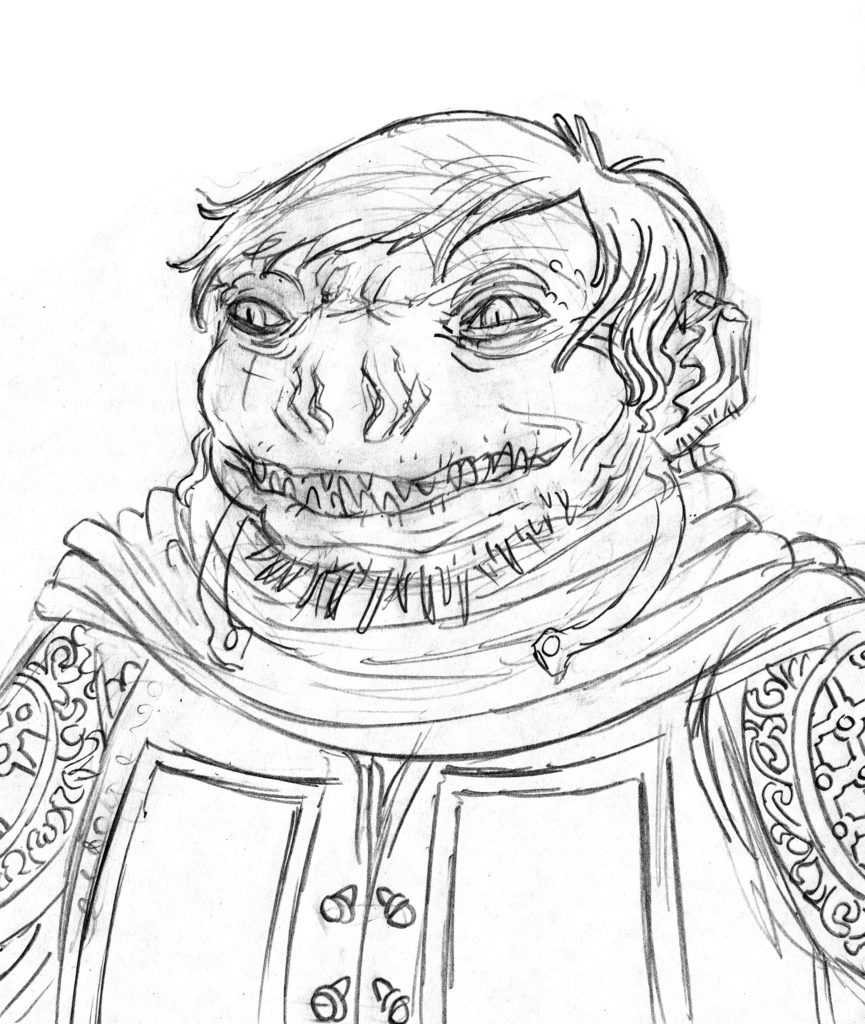
In D&D, the most common IC/OOC conflict is between players’ different ideas of “heroism.” Some people love playing idealistic, pure heroes who fight for justice and goodness (albeit still with lots of killin’, unlike in superhero stories where the heroes just send the bad guys to jail, zzzzz). Other people love playing ‘hard’ heroes, the ‘cool hitman’, the ‘cool rogue’, the ‘badass who doesn’t take shit from anyone’.
In my experience, almost everyone thinks of their D&D character as ‘good’; only a minority of players will say “Sorry, my character is a jerk…”. And most people will just use that as an excuse for acting jerky; only an even *smaller* minority will actually keep emotional distance from their jerk character and laugh as their jerk character gets the dramatic comeuppance which we want jerks to get in escapist fiction.
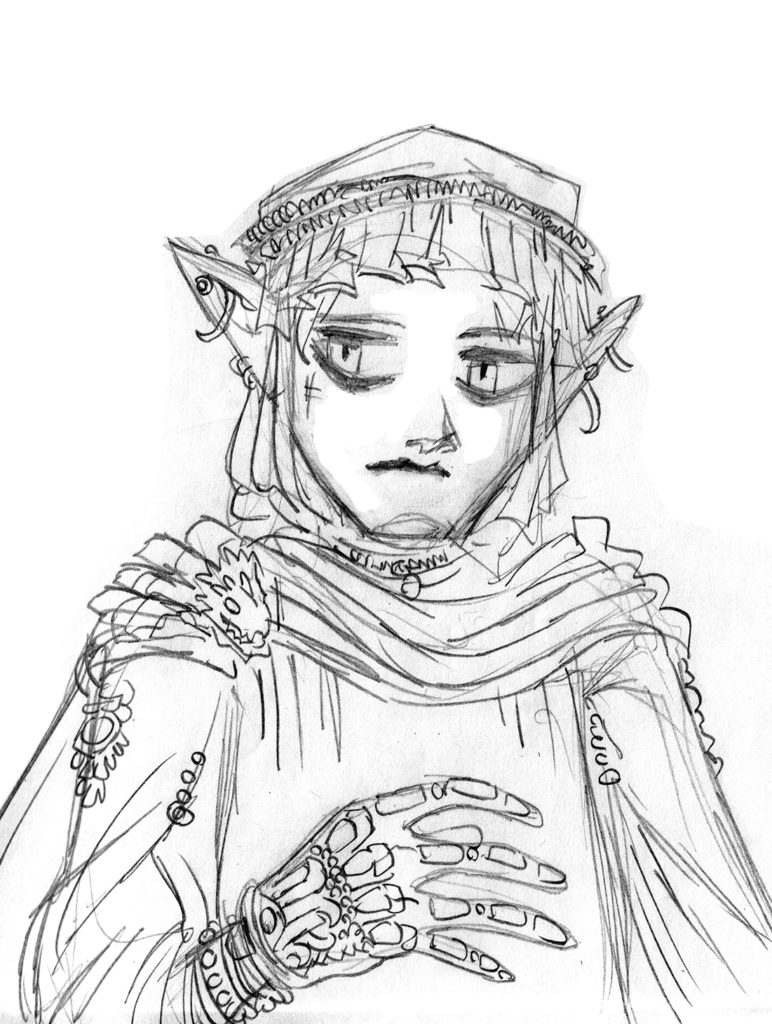
The clash of heroisms isn’t an easy problem; even in scripted TV shows watched by millions of people, it doesn’t make sense that Daredevil and the Punisher inhabit the same moral universe. Often, the players will act like Marvel TV writers and both sorta look the other way and avoid the conflict, but sometimes things get heated and DM has to take sides, or mediate between the players OOC to come to an agreement.
(A friend pointed out that in D&D and most RPGs, you’re encouraged to identify 100% with your character and have 100% agency… which works great until you clash with other players’ agency. It’s an interesting difference from some other, generally rarer, RPGs, like the comedy RPG “The Dying Earth”, in which the rules themselves establish that your character’s behavior isn’t entirely in your control (in Dying Earth, because your characters are all more or less ridiculous, clueless jerks like in a nihilistic fantasy sitcom) and you need to ‘keep some distance’ from them. Different rules create different expectations.)

On top of this is the semi-separate issue that different players, at different times, just take the ‘reality of the game’ more seriously than others. As a player in an old D&D game, I remember getting pissed off OOC and starting an in-character fight because another player’s character slit the throats of NPC prisoners. And yet in other games, when I was old enough to know better, *I myself* had played murderous Chaotic Evil jerks who just went around killing innocent NPCs constantly! >_<;; Some people are deeply engaged in the game, others less so. It’s unreasonable to expect every player to come to the game wanting a deep moral and emotional engagement with a bunch of imaginary beings in a fantasy world. (And it’d be hard on the DM to maintain this level of engagement too. Roleplaying games are games.)
And yet emotional engagement is wonderful. One of my favorite moments in our 4-year campaign was early on, when the adventurers were begged to help protect a besieged temple from evil Tiamat cultists who were about to break in and slaughter everyone. Seeing that the adventurers were hugely outnumbered, half the group, the roguish half, ran away… but the other half, led by one particular brave PC, decided to stay and fight the Tiamat cultists and protect the defenseless worshippers who were cowering behind the altar. “I couldn’t believe that I cared so much about the lives of these imaginary people!” the player said to me afterwards.
And best of all, after this dramatic split in the party, there was hardly any out-of-character argument or bad feeling. If people are in the right space for it out-of-character, in-character disagreements based on roleplaying can create some of the richest moments of the game.

People play D&D to do things they can’t do in real life, which causes issues when your fantasies bump against those of the other players. A bad D&D article I once read had a line like “You don’t want your players to think they can hit on the barmaid” to which my answer is, who cares if a player hits on the barmaid? This is make-believe, and wanting to be magically charming & beautiful & not-shy and have make-believe sex with make-believe people is as appealing (and more common) a fantasy as wanting to fly or kill monsters. I’ve played wonderful games by DMs of all genders which involved romance and (usually offscreen) sex.
Then again, there is the question of how much weight events have, how much time they occupy. There is a difference from “Player X hits on barmaids” vs “Player X sleeps with prostitutes in every major city.” Still, Game of Thrones is one of the most popular shows on TV and it’s full of glamorized sexy prostitution and some players are going to come to D&D with dreams of GoT in their minds and that shouldn’t be shocking or disqualifying. But then, there’s also a difference between “Player X talks about sleeping with prostitutes and the DM handwaves it and says ‘ok, you go do that’” and “Player X looks for prostitutes and the DM goes into a 15-minute raunchy prostitution mini-adventure”. Who knows, maybe everyone at the table thinks the prostitution subplot is hilarious; or maybe not and some people are actually annoyed and uncomfortable. It’s unproductive and pointless shaming to talk about ‘bad’ RPG fantasies. But some people with different fantasy lives—morality-wise or gore-wise or sex-wise—simply won’t have a compatible play style in the long term and might be better off finding different gaming groups with similar interests.
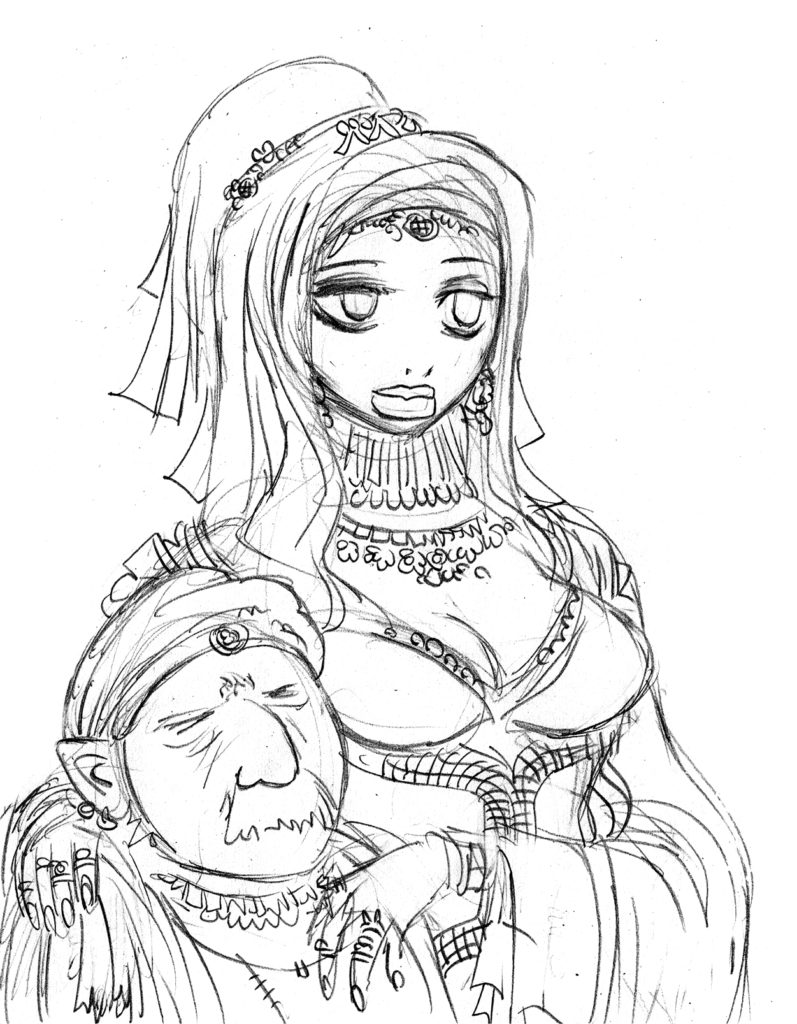
One of the DM’s main jobs is to be “H.R. Department” for the gaming group as a whole: to listen to players’ complaints; to be attentive to when players are unhappy but aren’t openly complaining and to reach out to them; and to mediate between players and make decisions when there are out-of-character disagreements. If the DM can’t step up and solve these issues, the game will end up dominated by the loudest, most aggressive and/or most demanding players, and/or the players will end up openly feuding, which is fun for nobody. Being “fantasy wish-fulfiller” and “challenge coach” at the same time as being “H.R. department” isn’t always easy, but this is a DM’s job. Sometimes I could have done better; in the future I hope I’ll do better.

…and so, after 4 years, our D&D game ended. In the end, the players surprised me by being MORE successful than I thought they’d be, unexpectedly killing one of their main enemies, the Red King, before he could teleport away, while simultaneously fighting two white dragons and a near-infinite number of Hittite infantrymen. The Red Mask was captured from the Red King’s corpse, the rise of Tiamat was thwarted, the Hittites surrendered and the surviving PCs were celebrated as heroes, after which I hit them with a new short adventure to tie up some plot threads. The last few sessions were a little rushed because I knew people were losing interest, so things went quickly at the end, like the last season of HBO’s “Rome” where they ran out of budget and had to condense the entire Antony & Cleopatra storyline into a few episodes.
It was a climax, though not every plot thread was tied up. They saved the world from Tiamat, learned the secret origin of the human race, and went to the moon. But would they defeat the evil Priests of Marduk? What about the most powerful creature on Earth, still hungering for conquest, the evil Dahhak the Gold King? And would they rescue their friends Bayati and Harala, imprisoned by the mermaids? Or baby Ziggy, one of only two gold dragons in the world? These questions were left as a “what if?” As the heroes fly from the moon to the earth on a flying carpet, dodging meteors and comets, the movie ends and the credits roll.
(But that’s not all!! Next post, more art by the other players!!)
I START every DD CAMPAIGN FEELING like I want to play but I don’t like the rules very much and loose intrest quickly
@Robert – Have you played D&D since that game at Viz? I’m sorry for all my DMing screwups!!